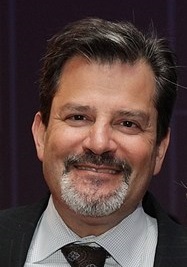Monday June 03, 2019 –
Friday June 07, 2019
8:00am-12:15pm
Event Details
When
Where
Hyatt Regency Mission Bay Spa and Marina
San Diego, California
Event Code
SEMLA-3320190603
Course Topics
Day 1
Adrenal Insufficiency- Primary and Secondary.
Upon completion of this session, the participant should be able to: COMP
- Apply principles learned to evaluate the diagnostic tests used to confirm the diagnosis or primary or secondary adrenal insufficiency.
- Employ therapeutic options for patients with primary or secondary adrenal insufficiency.
Cushing’s Syndrome and other Functional Disorders of the Adrenal.
Upon completion of this session, the participant should be able to: COMP
- Outline the etiology of Cushing’s syndrome.
- Evaluate a patient with an adrenal tumor.
- Evaluate a patient for suspected hyperaldosteronism.
Practical Approach to the Patient with Hypertension.
Upon completion of this session, using multiple research trials as well as the current JNC recommendations, the participant should be able to: GL, COMP
- Apply the current JNC recommendations for treatment of hypertension.
- Develop a rational approach to choosing medication in treating hypertension.
- Decide when and how to evaluate for secondary causes of hypertension.
Practical Approach to the Patient with Potential DVT.
Upon completion of this session, using multiple research trials as well as applying recommendations from the ACCP, AAFP/ACP, and the AHA/ACC, the participant should be able to: GL, COMP
- Obtain an appropriate medical history to better identify those patients at risk.
- More confidently evaluate and assess the patient suspected of having DVT.
- Better manage patients with the confirmed diagnosis of DVT.
Day 2
Practical Approach to the Patient with Headache.
Upon completion of this session, while applying recommendations from the IHC, NHF, AAFP, AAN and ACP, the participant should be able to: GL, COMP
- Review the differential diagnosis of a patient presenting with the complaint of headache.
- More confidently evaluate the patient with headache and appreciate the indications for imaging.
- Develop a treatment plan that considers lifestyle changes as well as medications.
Practical Approach to the Patient with Diabetes.
Upon completion of this session, using multiple research trials as well as recommendations from the ADA, EASN, AGA, CDA, AACE, ACP, and the AAFP, the participant should be able to: GL, COMP
- Consider this primer on management.
- Distinguish the patient who is likely to go on to develop complications and appreciate the potential long-term course.
- Apply the current guidelines for therapy and access the anticipated outcome goals.
Thyroid Case Studies.
Upon completion of this session, the participant should be able to: COMP
- Appreciate the role of a diagnostic thyroid scan or ultrasound.
- Evaluate a patient for hyperthyroidism.
- Prescribe therapeutic options for patients diagnosed with hypothyroidism.
Disorders of Calcium Metabolism.
Upon completion of this session, the participant should be able to: COMP
- Outline the causes of hypercalcemia.
- Recommend diagnostic testing for hyperparathyroidism.
Recognize secondary hyperparathyroidism.
Day 3
Novel Oral Anticoagulants.
Upon completion of this session, the participant should be able to: EBM, COMP
- Differentiate the advantages and disadvantages of commonly used anticoagulants.
- Employ evidence-based anticoagulation bridging regimens.
- Assess the approved indications for various anticoagulation agents.
- Apply the evidence-based indications for anticoagulation in hospitalized patients.
Consultative Medicine: Transfusion Guidelines, Delirium in the Hospitalized Patient.
Upon completion of this session, the participant should be able to: EBM, GL, COMP
- Interpret changes in the updated 2012 American College of Chest Physicians Evidence-Based Guidelines for Antithrombotic Therapy.
- Assess restrictive red blood cell transfusion strategy as recommended by American Association of Blood Banks (AABB) guidelines.
- Evaluate clinical factors that make patients more prone to hospital and postoperative delirium.
- Employ evidence-based strategies to treat delirium in hospitalized patients.
Male Hypogonadism.
Upon completion of this session, the participant should be able to: COMP
- Outline the classic causes of male hypogonadism.
- Appreciate the entity of adult onset hypogonadism.
- Describe the risks and benefits of testosterone use and apply toward decision making when reviewing treatment options.
Polycystic Ovary Syndrome.
Upon completion of this session, the participant should be able to: COMP
- Recognize the distinguishing features of PCOS.
- Prescribe appropriate laboratory tests to evaluate women with hirsutism.
- Describe the non-reproductive aspects of PCOS.
Day 4
Approach to the Management of Stroke.
Upon completion of this session, the participant should be able utilize the latest evidence based medicine and guidelines to: EBM, GL, COMP
- Develop a strategy to assess the common presentations of stroke/TIA.
- Utilize current initial treatment strategies appropriately.
- Develop a strategy to stratify the risk of stroke.
- Develop a secondary prevention plan.
Practical Approach to the Patient with Hyperlipidemia.
Upon completion of this session, using multiple research trials as well as the recommendations of the NCEP, the participant should be able to: GL, COMP
- Apply the current NCEP guidelines.
- Develop a practical approach for considering the new medications available.
- Consider the new targets developed for cholesterol end point.
Update in Perioperative Medicine.
Upon completion of this session, the participant should be able to: EBM, GL, COMP
- Appraise pre-operative cardiac risk stratification and management strategies, as per the ACC/AHA Risk Clinical Predictors.
- Determine the role of non-invasive stress testing, echocardiography, coronary angiography and the use of biomarkers to assess peri-operative cardiac risk, as per the ACC/AHA (2014) Perioperative CV Evaluation Guidelines.
- Relate the indications for beta blockers, statins and aspirin in the peri-operative period.
- Evaluate the bleeding risks of commonly prescribed medications and OTC supplements taken pre-operatively.
Challenging Infections: Methicillin Resistant Staphylococcus Aureus, Clostridium difficile.
Upon completion of this session, the participant should be able to: EBM, GL, COMP
- Assess and apply appropriate treatment strategies for different types of methicillin resistant staph aureus infections, as per the IDSA Guidelines.
- Employ rational use and relate the precautions of newer antibiotics when treating resistant bacteria.
- Distinguish Guideline based treatment of Clostridium difficile infections, as per the AGA Guidelines.
Day 5
Systolic and Diastolic Heart Failure.
Upon completion of this session, the participant should be able to: EBM, GL, COMP
- Appropriately manage decompensated heart failure in hospitalized patients.
- Assess the indications for positive inotropic agents and ultrafiltration in systolic heart failure.
- Distinguish the treatment of systolic versus diastolic heart failure, as per the 2013 ACCF/AHA Guidelines for heart failure management.
Atrial Fibrillation in the Hospitalized Patient.
Upon completion of this session, the participant should be able to: COMP, GL
- Assess and evaluate treatment options for atrial fibrillation with rapid ventricular response, as per the 2010 HFSA Guidelines.
- Employ appropriate anticoagulation strategies for atrial fibrillation.
- Distinguish the advantages of rhythm versus rate control treatment strategies, 2014 ACC/AHA Guidelines for atrial fibrillation management.
- Determine the possible underlying causes of CHF exacerbations.
Practical Approach to the Outpatient with Dementia.
Upon completion of this session, while applying recommendations from the AAN and the USPSTF, the participant should be able to: GL, COMP
- Formulate a practical approach to screening for dementia.
- Discuss medication management to include polypharmacy, drug-drug interactions, as well as new drugs and their potential efficacy and side effects.
- Develop a long-term follow-up and referral process that considers cost-effective and resource management.
Strategies to Address the Issue of Preventable Hospital Readmissions.
Upon completion of this session, the participant should be able to: EBM, COMP
- Identify the factors which contribute to increase risk of readmission.
- Stratify the risk for readmission utilizing evidence-based tools.
- Develop a transition of care strategy to reduce the likelihood of a preventable readmission.
Learning Objectives
About the Venue
Hyatt Regency Mission Bay Spa and Marina
San Diego, California
Outdoor pools, waterslides, and easy access to watersports and other activities at the marina make this Hyatt Regency ideal for outdoor recreation. A fitness center, spa, and other thoughtful amenities are also available.
Things to Do
San Diego, California
There’s something for everyone in San Diego, from craft breweries in North Park to nightlife in the Gaslamp Quarter to golfing in Mission Valley. Plus, you’ll find iconic California destinations within driving distance, including Joshua Tree National Park, Palm Springs, and Los Angeles.
Balboa Park
Historic neighborhoods
Watersports and fishing charters
Miles of Pacific coastline
SeaWorld San Diego
Presented By

David Horowitz, MD
Professor of Clinical Medicine, Perelman School of Medicine at the University of Pennsylvania; Associate Chief Medical Officer, University of Pennsylvania Health System; Philadelphia, PA

Vandana Bhide
Chief Hospitalist, St. Joseph Hospital and Medical Center, Phoenix, AZ; Clinical Assistant Professor Creighton University School of Medicine; Clinical Assistant Professor, University of Arizona College of Medicine

Stephen Winters, MD
Emeritus Professor and Chief, Division of Endocrinology, Metabolism and Diabetes, University of Louisville; Louisville, KY
Accreditation
Cancellation & Refund Policy
We understand that plans may change. Please review our cancellation and transfer options below:
30+ Days Before Conference Start Date
- Refund: Full refund minus a $50 processing fee.
- Transfer: Registrations can be transferred once, at no cost, to another conference within two years. Alternatively, registration may be placed “on hold” for up to 12 months, allowing participants to choose a suitable conference for transfer within that period.
Less Than 30 Days Before Conference Start Date
- Refund: No refunds available.
- Transfer: Registration may be transferred to another conference within 2 years at no cost. Alternatively, registration may be placed “on hold” for up to 12 months, allowing participants to choose a suitable conference for transfer within that period.
Additional Notes
- No-shows are non-refundable and non-transferable.
- If we cancel a conference, you may choose a full refund or transfer to another event.
On-Demand Courses
- All sales are final. No refunds or transfers.
Invitation Letters
If American Medical Seminars issued you an Invitation Letter to attend a CME conference in the United States and you need to cancel your registration, we will only refund 50% your registration fee. This is to cover the cost of your Invitation Letter and processing costs. By registering, you agree to the non refundable portion of the registration.
Disclaimer
In the event that AMS is required to cancel a live conference, registrants will receive a full refund within 7 business days. AMS is not responsible for charges associated with cancelled flights or hotel rooms.
How to Request a Cancellation or Transfer
Requests must be submitted in writing to mail@ams4cme.com or by calling 1-800-267-4263.
Note: By registering, you agree to this policy.


